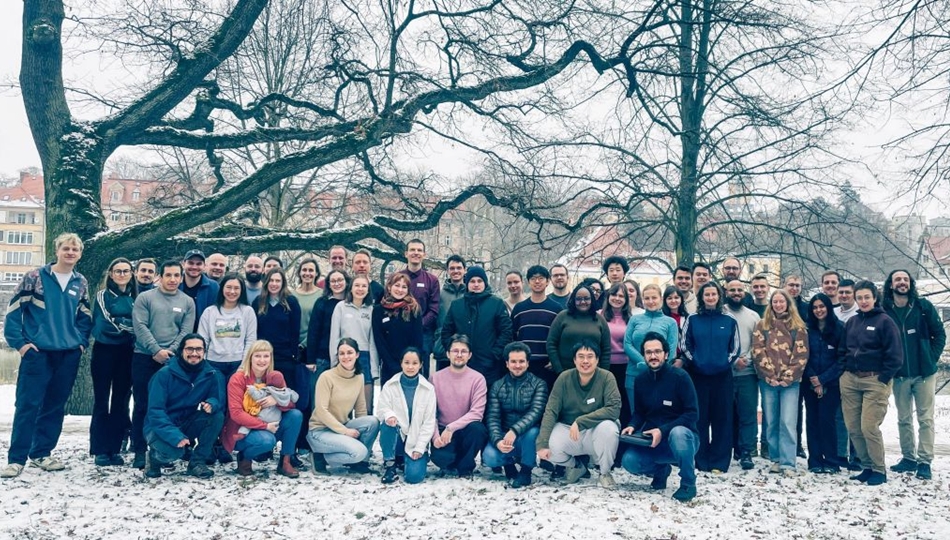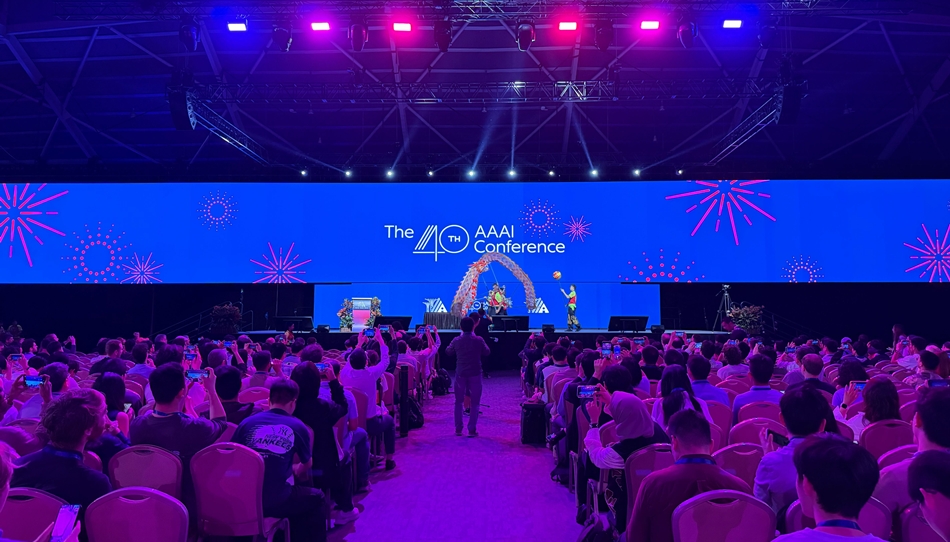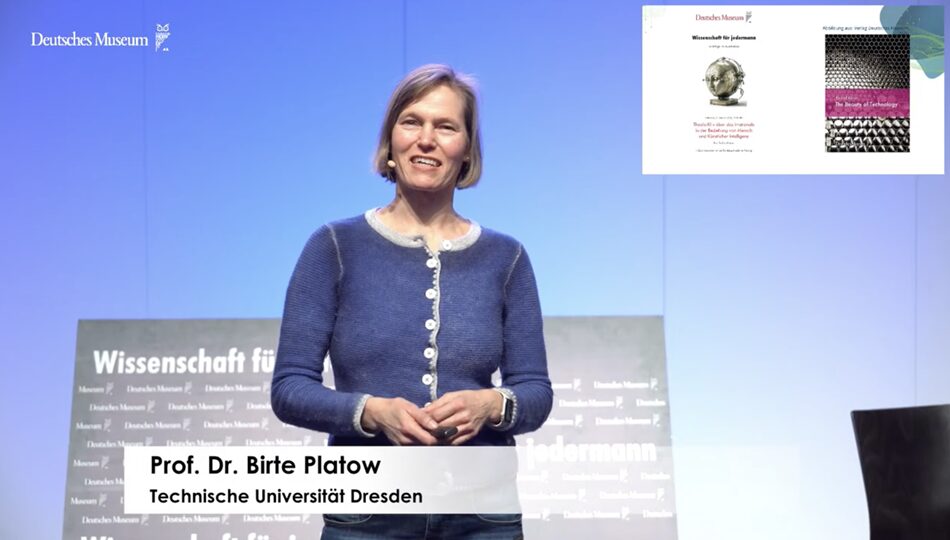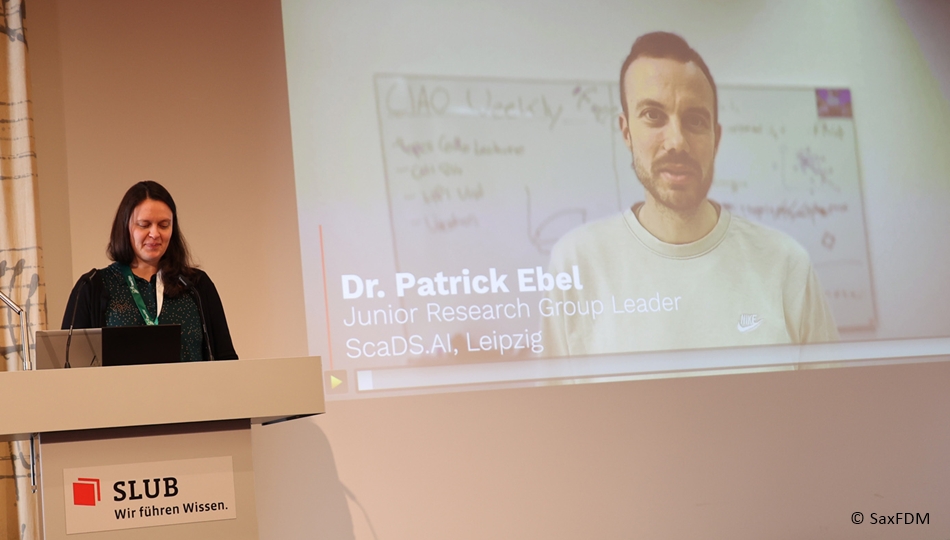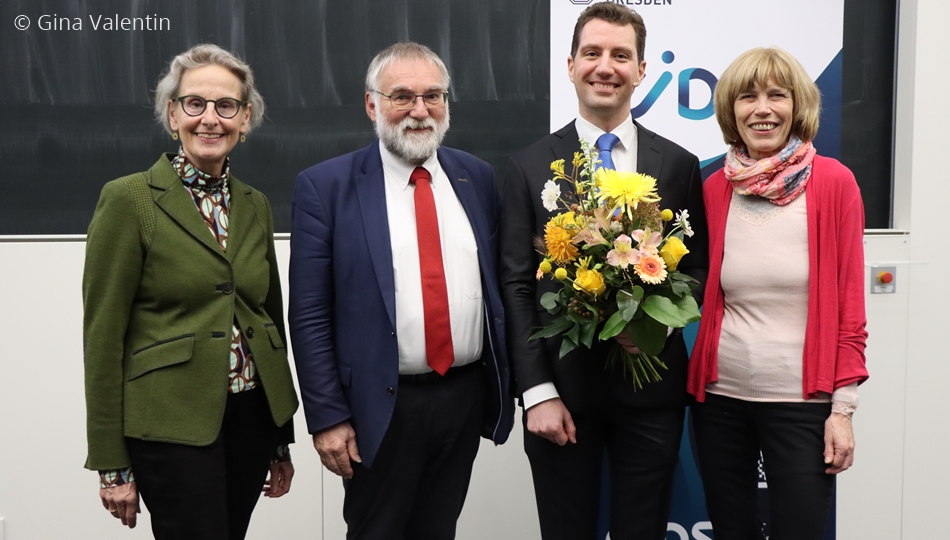
October 24, 2025
Successful University-wide Inaugural Lecture by Prof. Michael Färber

On October 16, 2025, Prof. Michael Färber successfully held his university-wide inaugural lecture “Will AI Replace Scientists? From Papers to Insights with Large Language Models and Knowledge Graphs” at Fritz-Foerster-Bau of TUD Dresden University of Technology. In his inaugural lecture, Prof. Michael Färber explored how the combination of knowledge graphs and large language models (LLMs) is changing the way we work with scientific literature and what this means for the future role of AI – and of scientists themselves.
Lecture: Will AI Replace Scientists? From Papers to Insights with Large Language Models and Knowledge Graphs
Science is producing knowledge at a pace no human can follow. The challenge is no longer access to data, but uncovering meaningful insights. Knowledge graphs help by structuring complex information, while LLMs provide reasoning to connect the dots. Together, they enable systems that can analyze millions of research papers, extract evidence-based insights, and turn scattered knowledge into understanding.
In the beginning of the lecture, Prof. Ursula M. Staudinger (Rector, TU Dresden) and Prof. Christel Baier (Dean, Faculty of Computer Science at TU Dresden) welcomed the audience. The laudatio for Prof. Michael Färber was given by Prof. Wolfgang E. Nagel (Director, ScaDS.AI Dresden/Leipzig and CIDS – Center for Interdisciplinary Digital Sciences at TU Dresden). The event was moderated by Lydia Lorenz (Coordinator, CIDS – Center for Interdisciplinary Digital Sciences at TU Dresden).
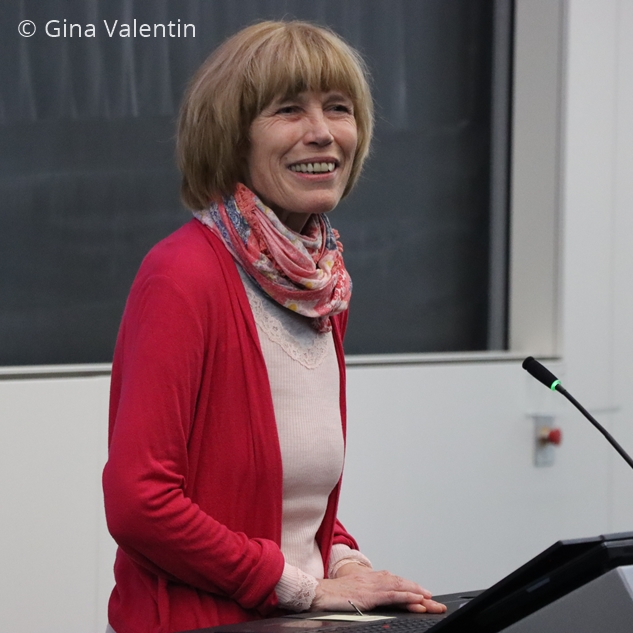
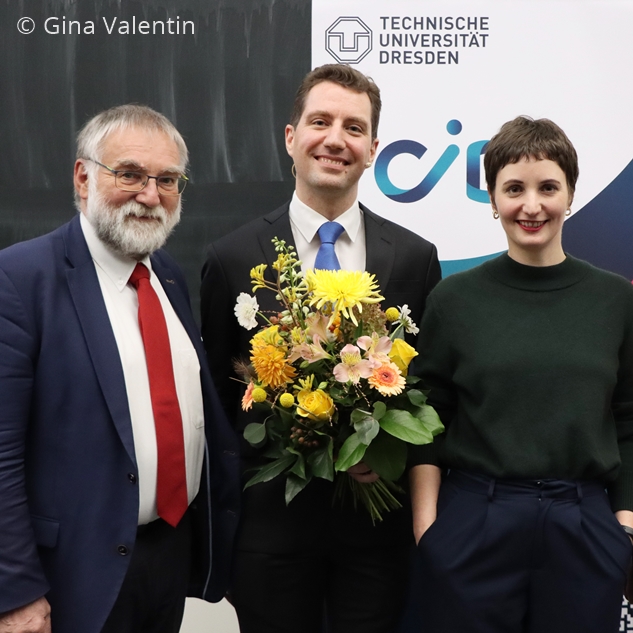
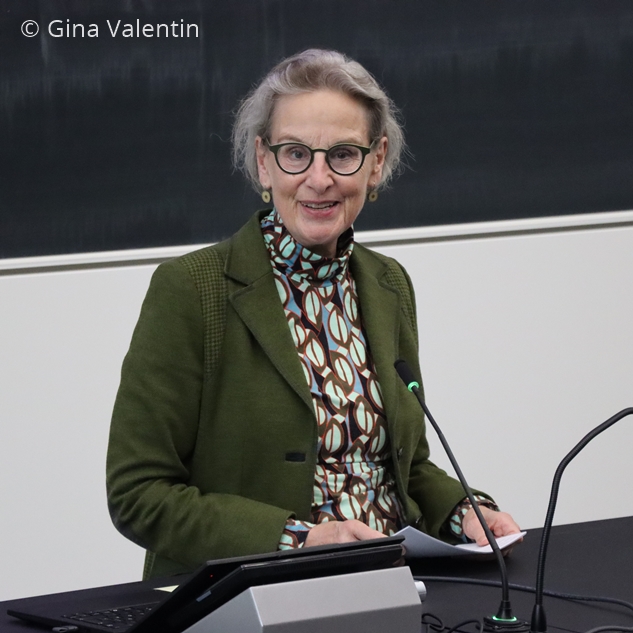
Prof. Michael Färber
Prof. Dr.-Ing. Michael Färber has been a Full Professor (W3) at ScaDS.AI Dresden/Leipzig and TU Dresden since April 2024, where he leads the “Scalable Software Architectures for Data Analytics” group. Appointed at the age of 36, he previously served as Deputy Full Professor for Web Science at the Karlsruhe Institute of Technology (KIT). His research focuses on Artificial Intelligence, in particular large language models, knowledge graphs, and graph neural networks, with links to neurosymbolic and explainable AI. Among the central themes of his work is scholarly data mining – developing AI systems that analyze millions of research papers to make scientific knowledge more accessible and trustworthy. He has authored over 120 peer-reviewed publications at venues such as ACL, EMNLP, ISWC, CIKM, KDD, and NAACL, and has received multiple Best Paper Awards.

